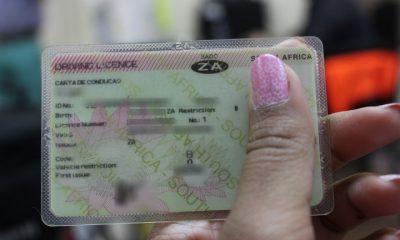News
Innovative Online Protection Orders in South Africa

The government has embarked on an innovative initiative, currently being piloted across several provinces, that aims to empower victims of domestic violence by enabling them to apply for protection orders through an online platform. This groundbreaking effort represents a significant step towards providing accessible and immediate assistance to those who find themselves trapped in the harrowing cycle of domestic abuse as reported by Business Tech.
Also Read: Niger Closure Diverts Joburg & Cape Town-London Flights
Addressing the deeply entrenched issue of gender-based violence (GBV), President Cyril Ramaphosa highlighted the gravity of the matter. He stated that the violence inflicted upon women and girls by men is an affront to the shared humanity of society. His remarks were delivered with unwavering determination during his keynote address commemorating Women’s Day, an event held at the dignified Union Buildings in Pretoria.
In a persistent response to the outcry for more stringent measures against perpetrators of GBV, President Ramaphosa underscored the government’s actions. As of earlier this month, significant amendments to the bail conditions for those charged with rape have been enacted. If the accused has any ties to the victim through a domestic relationship, the grant of police bail is prohibited. Instead, bail applications must be formally pursued through the court. If such a relationship is established, a protection order must be secured against the accused before any bail release. This move represents a critical safeguard against potential danger and provides a secure environment for victims.
Furthermore, in a concerted effort to address the gravity of certain offences, the President declared that gang or serial rapists, as well as perpetrators of date rape, marital rape, child rape, and incest, will now face life imprisonment. This marked strengthening of the penalties reflects a commitment to confronting the issue at its core.
Parallel to these legislative adjustments, the government’s endeavours extend beyond policy changes. The overarching theme for this year’s Women’s Month, “Accelerating Socio-Economic Opportunities for Women’s Empowerment,” accentuates the imperative to ensure that women are equal participants and beneficiaries across all facets of human endeavours.
President Ramaphosa emphasised the extensive strides taken to combat GBV. He cited the inaugural Presidential Summit on Gender-Based Violence and Femicide in 2018, which initiated an unwavering commitment towards an all-encompassing response to the crisis. A pivotal outcome of this commitment is the National Strategic Plan to Combat Gender-Based Violence and Femicide, launched three years ago, which has since demonstrated meaningful progress.
This progress is tangible in the form of training, where more than 12,000 police members have received specialised instruction to address gender-based violence and prioritise the needs of victims effectively. Additionally, the government has taken tangible steps towards enhancing evidence collection by delivering over one million DNA collection kits to police stations nationwide since 2019. Complementing this, more than 1,000 victim-friendly rooms are established within police stations across the country, fostering an environment conducive to support and testimony.
A visible enhancement of resources for victims is evident through establishing of three new Thuthuzela Care Centres dedicated to those impacted by gender-based violence. This elevates the national total to 62, contributing to improved shelter access and vital support services for survivors.
President Ramaphosa’s leadership in this critical domain has materialised by enacting significant legislation. In January of the previous year, he ratified three pivotal pieces of legislation: the Criminal Law (Sexual Offences and Related Matters) Amendment Act, the Criminal and Related Matters Amendment Act, and the Domestic Violence Amendment Act. These transformative laws offer enhanced protection for survivors of gender-based violence, ensuring that evasive tactics employed by perpetrators are rendered ineffective and augmenting preventative measures against future incidents.
Dr Nkosazana Dlamini Zuma, Minister in the Presidency responsible for Women, Youth, and Persons with Disabilities, acknowledged the progress made in the realm of women’s empowerment since the democratic transition. However, she stressed the enduring journey that lies ahead, emphasising that true freedom for South Africa can only be realised when women are truly emancipated. Dr Dlamini Zuma’s call to action extends beyond government spheres, advocating for a holistic approach through the District Development Model. This approach envisions every councillor and religious leader taking a proactive stance against GBV at the local level. Dr Dlamini Zuma further underscored the urgency of ensuring women’s access to justice and the need to address the serious issues faced by the LGBTQIA+ community in the realm of discrimination and violence.
The government’s multifaceted efforts, from policy amendments to practical support services, reflect an unwavering commitment to addressing gender-based violence and empowering women across South Africa.
Also Read:
Follow su on Google News
Photo: Facebook / @BusinessTech






















